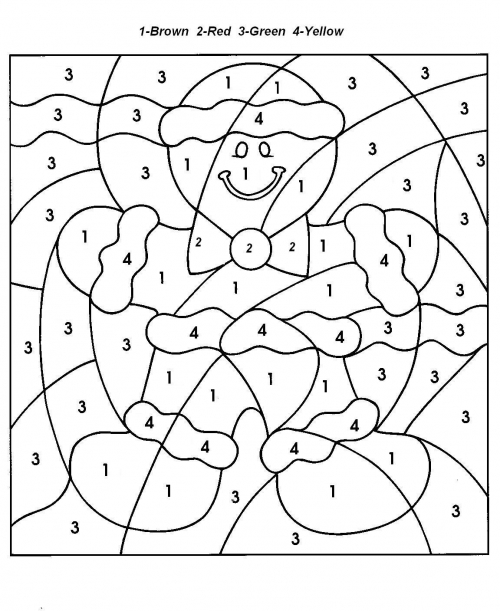
Of course we all have to acknowledge how incredibly sad it is that the beloved brainchild of the brain, Jonah Lehrer, has gone down. Not only has he packed up his New Yorker blog, but his publisher, Houghton Mifflin Harcourt, has pulled his top-selling book, Imagine: How Creativity Works. All because he self-plagiarized and made up some Bob Dylan quotes.
First, can we acknowledge, in addition to the incredible sadness, how morbidly funny this situation is? I mean, really. Imagine? How Creativity Works? Well, it works by making stuff up. Plus, creativity helps to take original ideas out of context or combine disparate ideas that had nothing to do with one another. That’s fucking imagination. Second, can we imagine, just for a moment, the lengths to which Lehrer’s own personal imagination must have gone in order to even desire pulling off such a ridiculous (and probably unnecessary) deception?
I don’t have a degree in neuroscience, so I can’t begin to explain whatever logical or evolutionary brain systems were responsible for Lehrer’s many missteps. But I do have a healthy imagination, so I’d like to propose a few made-up justifications for Lehrer’s choices. (For a rundown of those choices, check out this article in Tablet.)
Reason #1
He’s actually into psychology and wants neuroscience, as a hip intellectual phenomenon, to fail
In the raging battle fought between sciences for popularity—a vicious, cutthroat, and often violent battle—accuracy and peer-reviewed precision are daggers the scientists use to kill each other’s dreams of maybe being read one day. For Lehrer to so blatantly flout the basic tenets of science changes the conversation from science to feelings. Shame, doubt, disappointment...the interest now is not how fun our brains are but how messed up and totally incomprehensible they are.
Reason #2:
He believed himself to be beyond reproach
In other words, he’s got gigantic, delusional balls. Of the gazillion people who are huge fans of Bob Dylan, approximately half have devoted their lives to studying and memorizing everything the man has ever said. How could Lehrer think no one would notice discrepancies? Also, and this is just a hunch, as I haven’t had the chance to read Imagine, but were the fabricated quotes even necessary to prove his arguments? I sincerely doubt the neuroscience of creativity lives or dies based on the lyrics to "Like a Rolling Stone." I'd also like to thank the New York Times for pointing out that Dylan himself likes to keep his facts slippery. Which either means A) Lehrer's mirroring Dylan but just didn't know how to explain the joke to the rest of us, or B) see "delusional balls."
Reason #3:
...and is ragingly jealous that, even with his mind-blowingly hot career, he will still never be as cool as Dylan. Let’s say little Lehrer is at the kitchen table working studiously on some homework while mom has Blonde on Blonde playing in the background. Lehrer tries to show her how his genius kid mind just did something awesome but she’s a little busy singing along to “Absolutely Sweet Marie.” Lehrer launches further into his studies in hopes of one day gaining recognition and becomes super famous neuroscience man, not only succeeding academically but making neuroscience fucking hip. But who will always be hipper than neuroscientists? Rock stars. And as much as Lehrer has utilized science to show us some awesome and true things about humanity, Dylan kinda also already showed us a shit-ton of awesome and true things about humanity. And Dylan didn’t need a degree or science or anything else to do it.
I do think there's an opportunity here for us to acknowledge the fallibility of human beings and get all warm and fuzzy about how all of us fuck up all the time. But what I'd prefer to take away from the whole affair is this: artists are better than scientists, both ethically and as conduits of truth. Bob Dylan uses storytelling and fabrication in order to reach certain truths that never relied on the facts of the matter, but which ring true in people's hearts anyway. Lehrer's entire body of work relies on facts building on top of one another to establish a particular reassurance of truth. Artists work at bringing about new truths from what never existed before. Scientists have a different kind of task, one that must reveal the truth of that which already exists.
The great tragedy, I think (among the many small tragedies here), is that Lehrer could've probably come up with much better untrue things to say.
image: bobdylan.com

Last week, science writer Jonah Lehrer was all over the news after reporters found a number of substantial repetitions between his previously published writings and his new work for the Frontal Cortex blog he brought with him from Wired to the New Yorker. (And now there's this.) A year-old piece from the Observer quoted Lehrer describing some aspects of his high-paid lecture circuit as “existentially sad,” particularly his surplus of electronic hotel keys. Daisy Buchanan and Søren Kierkegaard know what he means.
1.
“You end up getting existentially sad, where you look through your wallet and you realize you’ve got like seven hotel keys…It happened last week in San Francisco, where I was convinced this key wasn’t working. I went down to the front desk, and they pointed out that I was using the wrong key. It was from a month ago.”
—Jonah Lehrer, quoted in the Observer, 2011.
2.
“And yet it could be that the little I have to say contained some particular remark which, if it met with favour and indulgence, might be found to contain some truth even if it concealed itself under a shabby coat.”
—Søren Kierkegaard, Either/Or, 1843.
3.
“He took out a pile of shirts and began throwing them, one by one, before us, shirts of sheer linen and thick silk and fine flannel, which lost their folds as they fell and covered the table in many-colored disarray. While we admired he brought more and the soft rich heap mounted higher—shirts with stripes and scrolls and plaids in coral and apple-green and lavender and faint orange, and monograms of Indian blue. Suddenly, with a strained sound, Daisy bent her head into the shirts and began to cry stormily. 'They're such beautiful shirts,' she sobbed, her voice muffled in the thick folds. 'It makes me sad because I've never seen such—such beautiful shirts before.'”
—F. Scott Fitzgerald, The Great Gatsby, 1925.
Let Me Recite What History Teaches (LMRWHT) is a weekly column that flashes the gaslight, candlelight, torch, or starlight of the past on something that is happening now. The citational constellations work to recover what might be best about the “wide-eyed presentation of mere facts.” They are offered with astonishment and largely without comment. The title is taken from the last line of Stein’s poem “If I Told Him (A Completed Portrait of Picasso)."
Image: keanureeves.blogspot.com

In last week's New Yorker, science writer Jonah Lehrer presents an interesting correlation between creativity and physical space. He sums it up with a quote from Isaac Kohane, a Harvard Medical School researcher: "Even in the era of big science, when researchers spend so much time on the internet, it's still so important to create intimate spaces."
Read More
As much as I believe my intuition to be above reproach, it’s nice to have a little science come along to back my shit up. Days after I posted about putting things in boxes, I came across a vindicating Jonah Lehrer article in Wired: it seems that scientists have proven that restrictions trigger the brain to perceive on a larger scale and to conceive of a greater range of ideas, thereby boosting creativity. Thank you, science!
Now that imposing form (aka my favorite kind of restriction) has been sanctified as awesome by the brain masters, I feel compelled to push the envelope a bit further and bring in the frail, curmudgeonly matter of intention. To be clear: by form, I mean the shape of a piece of writing; the way in which content is organized on the page. It's easiest to imagine the imposed form of a sonnet, but any variety of form can just as easily be imposed on any piece of writing. You could set out to write a short story beginning every sentence with the letter Q. You could limit the syllable count in every paragraph, use only monosyllabic words, end every paragraph with a different color.
Now, imagine an idea of what you want to write about and an imposed form are fighting. Do you know who is going to win? Form. The answer is Form. Why? Because form owns you. Because form is more necessary to the achievement of beauty than some idea you had. Form takes that idea and makes it better—science says so.
As soon as an idea finds its way into language, it is trapped by the rules of grammar, coherence, effect. What is written supersedes the idea that compelled the language onto the page.
In other words, what is read are the words put down, not the intention behind those words. No author can whisper into the ear of every reader to explain what they meant. But this imposition, this forcing of an idea into language, in turn allows that idea to be explored, tweaked, and revised more fully. If I get the idea in my head to write about pancakes and how delicious they are, chances are, if I set up some limitations for myself beforehand, if I make the adventure of writing more challenging, I will be forced to enter more interesting territory.
Pancakes could achieve greatness. Pancakes could bring you to your knees. One of the greatest side-effects of form is that it’s likely to push intention further into an unexpected, delightful place.
Photo: coloringes.com







 A Black Balloon Publication ©
A Black Balloon Publication ©